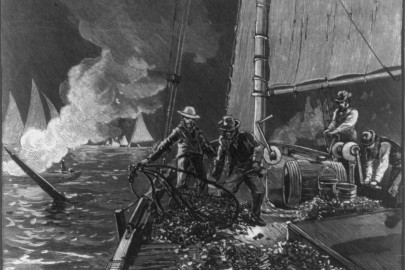Education standards are in the news on both sides of the Atlantic. In today’s dispatch, Rita wonders whether America really values its teachers…
On my first day of student teaching I exchanged my hippie duds for what I thought was a suitably sober, professional outfit: a plain grey skirt and a maroon sweater. Unfortunately that turned out to be the exact colors of the school uniform and I spent my first day being mistaken for a new student instead of a teacher. My teaching career was pretty much all downhill from there. During that misspent year I visited a friend who was teaching in another town. I sat in on his religion class as he lectured off the cuff in front of a large poster of Jesus. At one point he dramatically flipped the poster over to reveal a portrait of Che Guevara, asserting that the two revolutionaries shared the same message. The students slumped in their seats apparently bored by this novel approach to religious instruction. Luckily for my friend this took place in England. If he had tried the same thing in America he would have been under lock and key before the school bell rang. Future generations of English children were spared when we both moved on to other careers.
I may not have taken up the teaching life, but I do have enormous respect for teachers. My father was a teacher. Among my earliest memories is seeing him take off his bicycle clips in the evening after cycling from Dagenham to work in the East End. In later years he traveled the Central Line to Mile End station every day. He used to say that the only person who could walk the streets safely in that neighborhood at night was a nun from the local convent. He spoke of the weapons he confiscated in class, usually knuckle-dusters. How quaint that sounds now that guns are so commonly found in American schools. He taught history. One of his favorite stories was about the boy who answered the question “What is the Tudor Rose?” with “That’s the pub down the end of my road.” His career spanned the demographic changes in London that turned the old Cockney East End into a multicultural melting pot. In one of his classes every student spoke a different language. His students revered him and many kept in touch for years after leaving school, laughing at memories of the troublesome youths they had been.
I’m thinking about all this because with the Chicago teachers’ strike, dismay over falling test scores, and the dueling education policies of the presidential candidates, teachers are in the news again. There is a general feeling that American education just isn’t what it used to be, and comparisons with other nations are certainly not flattering to the U.S.A. The media is filled with theories. Could we be falling behind in science education because of the widespread attempts to inject creationism into science class? That sounds reasonable. In her first year at college my daughter met a girl who was planning to major in science. She had never heard of evolution; it was never mentioned in her Kansas high school. When she learned about it in a college class she was completely shocked and sobbed on the phone as she confronted her parents about why they had kept her in ignorance. On the other hand some voices claim that education is failing precisely because God is left out of the classroom. There are plenty of scapegoats: lazy parents, too many electronic distractions, too much government, too little government, and of course the teachers themselves. It seems that every political season, at the national and the local level, teachers, and especially the teachers’ unions, become a favorite punching bag. When local budgets are tight and teachers’ pay is in the news it is common for teachers to be attacked for the burden their salaries and benefits place on taxpayers. But compare teachers’ pay to that of most other professionals or to your average hedge fund manager and you find that they are actually doing one of the most important and difficult jobs in the nation for very modest compensation. As President Kennedy said: “Modern cynics and skeptics see no harm in paying those to whom they entrust the minds of their children a smaller wage than is paid to those to whom they entrust the care of their plumbing.”
I have my own theory about why education isn’t what it used to be. It goes back to the 1970’s. When my husband was in law school there were a handful of women in his class, the first wave of what would become a flood of women entering the legal profession. When he began his career as a government lawyer in Washington D.C. many of his colleagues were women. (Only a generation before, Sandra Day O’Connor, a future Supreme Court Justice, was offered a job as a secretary when she graduated from law school). These women were very conscious of their position in the vanguard. Combine that with the fact that the legal profession attracts assertive, combative types and the atmosphere of militant feminism in vogue at the time and you get a rather toxic brew of contempt for women who made more traditional choices in life. At the time I was the stay-at-home mother of a young child and pregnant with another. At social gatherings I was often treated with patronizing disdain. “I see he keeps you barefoot and pregnant” said one of these lovely ladies before moving on quickly to talk with someone more important. The disdain wasn’t reserved for mothers, but for any traditional woman’s role. “Don’t get me wrong, I had a teaching credential before I went to law school,” said one woman as an intro to disparaging those who “settled” for teaching. My library degree hardly helped my reputation in these circles.
Once upon a time a narrow range of career options was available to women: teaching, nursing, secretarial work. But as opportunities expanded in the 70’s and 80’s the smartest women chose more prestigious and lucrative careers in law, medicine, and the corporate boardroom. The best and the brightest who once educated our children disappeared from the classroom. I don’t mean to suggest that there are no talented, dedicated teachers out there, but I do think this social change had the unintended consequence of lowering the status of teaching and shrinking the pool of top-notch students who enter the profession. Now if only teachers were paid as much as lawyers, doctors, and hedge fund managers that would be a change for the better. Then we could finally put to rest the old adage gleefully quoted by one of those women lawyers: “Those who can do, those who can’t teach.”













That’s a fascinating theory and one I haven’t heard before.
I believe that in the UK over the last decade or so there have been above-average increases in teachers’ salaries, especially for headteachers. I sense that more go-ahead types are now aiming for the six-figure, attractively pensioned salaries available for these latter positions than when I was a recent graduate.
One also hears increasingly about more mature professionals entering teaching, City types and suchlike. I wonder whether this cadre of 40+, experienced and worldly folk will have an appreciable impact?
1. “American education”, like “American weather”, is a generalization a bit large to be useful. Even in Montgomery County, Maryland, there are considerable differences between the schools.
2. Yes, the opening of more professions to women did affect the supply of teachers. No doubt there was a similar effect among African-American men.
3. The county taxpayers aren’t paying the hedge fund professionals, or at least the levy is not seen and so not resented.
4. It is my notion that Americans distrust education as being hierarchical–vote how and as often as you want x^2 – y^2 will always factor as (x + y)(x – y), and calling in to a talk show won’t change it. I also think that we deal badly with it because it is labor-intensive and the American bent is for displacing labor with technology. That technology is inappropriate or just doesn’t work only sometimes makes us reconsider. There is also the smelly matter of privilege–SATs seem to track family income so closely. The child who grows up in a household full of books arrives at school with an advantage over the one who does not, and commonly maintains it. And then there are the children who do not have a stable household at all. It’s life, but it is at variance with our pretensions.
5. And our answer when something proves hard to teach is not to teach harder but to find something easier to teach. Andrew Hacker had a piece in The New York Times within the last two months arguing against compulsory algebra, an outstanding example of the tendency.
6. “But compare teachers’ pay to that of most other professionals or to your average hedge fund manager and you find that they are actually doing one of the most important and difficult jobs in the nation for very modest compensation.” For the first part, I’d say that it depends on which other professionals you mean. Doctors? But doctors undergo a longer and more rigorous (and expensive) training. For the second, well, Barak Obama has very modest compensation compared to a hedge fund manager, though I’m sure that some day he’ll catch up with book deals, speaking fees, and board seats.
7. ““Modern cynics and skeptics see no harm in paying those to whom they entrust the minds of their children a smaller wage than is paid to those to whom they entrust the care of their plumbing.” A few of my best teachers had taken vows of poverty. And some of my worst teachers–I can come up with a list of half a dozen–would have drowned hundreds had they gone into plumbing. Fortunately, children are resilient.
If your theory was correct, shouldn’t we all be complaining about the decline in the quality of nurses? I’ve never heard anyone say that.
There are good teachers and there are bad teachers, like the ones who tell kids how similar Jesus and Che Guevera were. The debate is largely about the structural inability to get rid of the bad ones and the fettering and demoralizing of the good ones (and their parental allies) by unions and huge bureaucracies of administrative “educators”. It’s not always easy to tell the difference, but I know in which camp I’d put teachers who are convinced society is all askew because they don’t make as much as hedge fund managers. On that theory, the most highly paid profession would be daycare workers.
I didn’t realize that there was much confusion on the point: Yes, Americans generally have nothing but disdain and contempt for teachers. That’s generally the rule literate countries, where teaching young children is, for most of the population, the careef of last resort. It is compounded in the states by teachers’ delusions of grandeur, insistence on salary and benefits far beyond their worth, and overall terrible job. (Yes, yes, you once had a good teacher who inspired you. That has nothing to do with the overall point.)
It’s worth noting that the US spends by far the most money in the world on education, both in total (more than we spend on, say, defense) and by student. We spend about one-third more per student than the UK does. Statistically speaking, at least within the states the relationship between amount spend and outcome appears to be negative (that is, the more a school system spends per student, the worse the students do). The money we spend on education is, in fact, more a reward for the political reliability of the teacher’s unions than how the teachers perform their job.
In this sense, the teachers unions (that is, teachers corporately) are the enemies of the student. They seek to sap all the money out of the system for the benefit of teachers and stoutly resist any discipline by the system or any responsibility for how they serve their students. In the recent teachers’ strike in Chicago, the real sticking point was the union’s absolute refusal to allow teachers to be judged on student performance.
Even worse, in large American school systems, teachers cannot be fired. Most large American systems have a room where teachers who cannot be trusted in the classroom — not just because of incompetence but for far worse reasons as well — are made to report every day, all day, until they retire. In Los Angeles, for example, teachers get lifelong tenure after 18 months of teaching. In NYC, from 2007 to 2010, just 88 teachers (out of 80000) were fired for incompetence.
We have contempt for teachers because teachers are contemptible.
Nurses: An awful lot of American nurses are immigrants, born, raised, and trained overseas. Because teachers need a firmer grasp of the language in general than nurses do–who deal with an limited (though critical) range of vocabulary–bringing in teachers from abroad doesn’t work so well. A local county did bring in a lot of teachers from the Philippines, but I forget how that worked out. There is also I think a higher ratio of gratitude among those who come under a nurse’s care than among those who come under a teacher’s, and generally less time to become disenchanted. There is also the matter of continuity. A nurse can work in the US pretty much on his or her own terms. Even a substitute teacher tends to have less freedom.
Contemptibility or not: Bumper stickers are best read in passing.